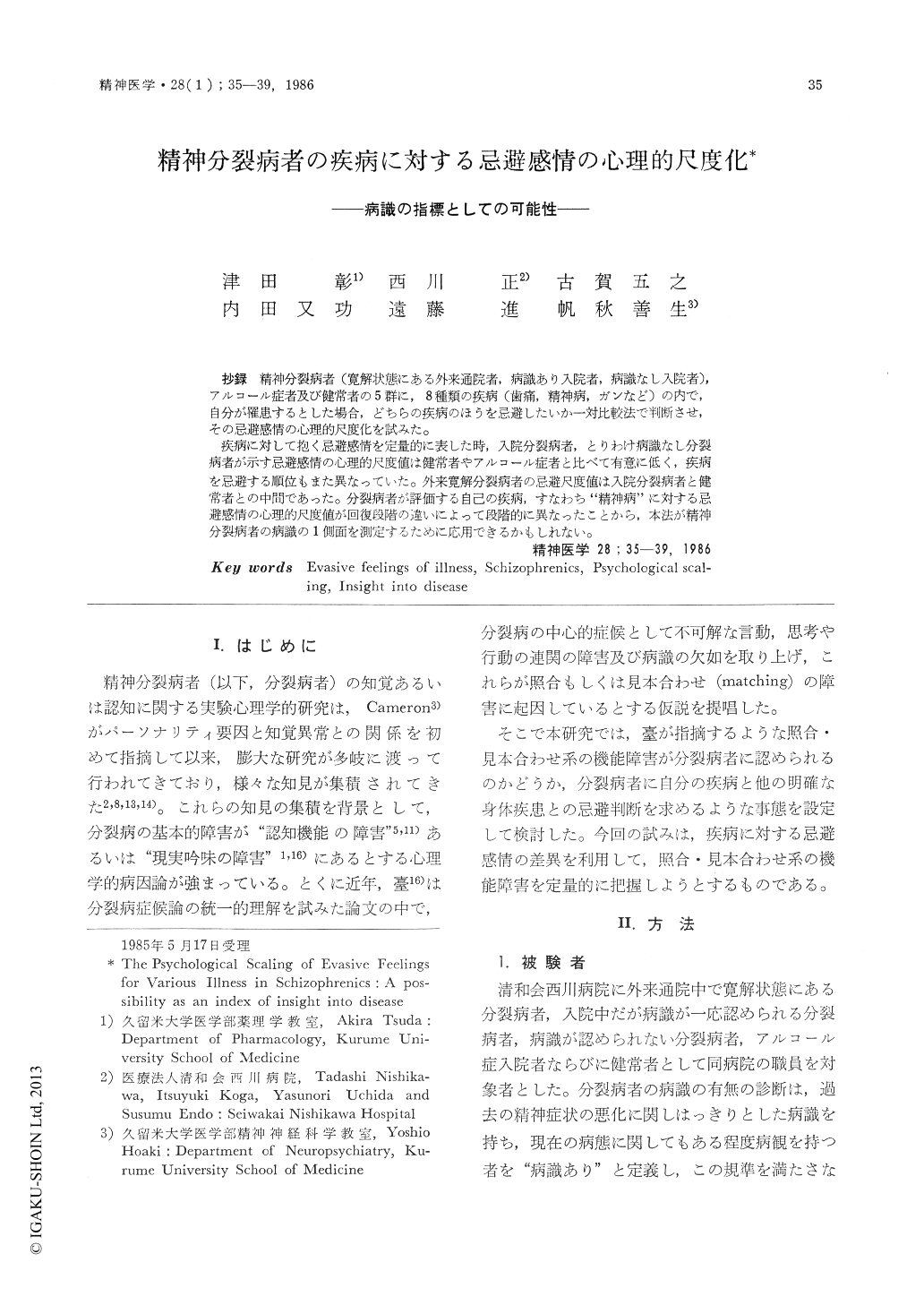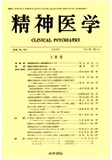Japanese
English
- 有料閲覧
- Abstract 文献概要
- 1ページ目 Look Inside
抄録 精神分裂病者(寛解状態にある外来通院者,病識あり入院者,病識なし入院者),アルコール症者及び健常者の5群に,8種類の疾病(歯痛,精神病,ガンなど)の内で,自分が罹患するとした場合,どちらの疾病のほうを忌避したいか一対比較法で判断させ,その忌避感情の心理的尺度化を試みた。
疾病に対して抱く忌避感情を定量的に表した時,入院分裂病者,とりわけ病識なし分裂病者が示す忌避感情の心理的尺度値は健常者やアルコール症者と比べて有意に低く,疾病を忌避する順位もまた異なっていた。外来寛解分裂病者の忌避尺度値は入院分裂病者と健常者との中間であった。分裂病者が評価する自己の疾病,すなわち"精神病"に対する忌避感情の心理的尺度値が回復段階の違いによって段階的に異なったことから,本法が精神分裂病者の病識の1側面を測定するために応用できるかもしれない。
Evasive feelings for various illness, such as cancer, mental disease, alcoholism, neurosis, tooth ache, etc, were measured on a form of paired comparisons given to normal subjects, alcoholic inpatients and schizophrenics in various graded levels of remission (i.e., remitted outpatients, inpatients with insight into disease and inpatients without insight into disease). The psychological scaling of these feelings was obtained for each of these groups, utilizing Thurston's case V methodology. It was found that schizophrenic inpatients, with or without insight into disease, showed significantly lower levels in evasive feelings of mental disease, as compared with the normal or alcoholic inpatients which did not differ from each other. The remitted schizophrenic outpatients displayed more similar patterns of evasive feelings to normal and alcoholic inpatients, than those of the schizophrenic inpatients. The importance of these findings for an index of insight into disease is discussed in line with the "deficit of matching function" theory.

Copyright © 1986, Igaku-Shoin Ltd. All rights reserved.


